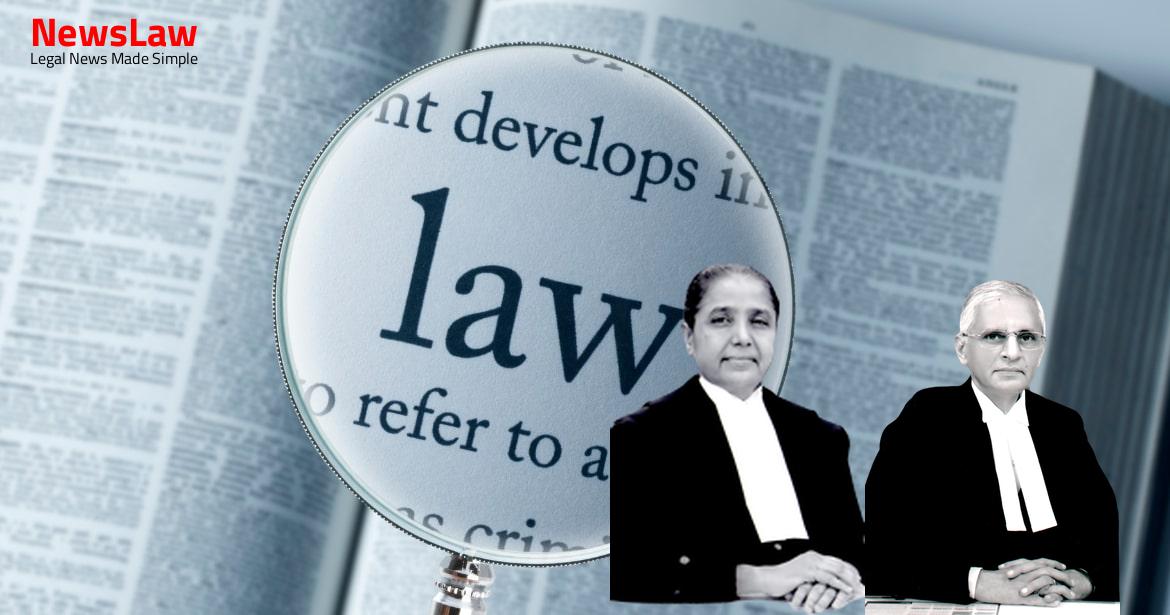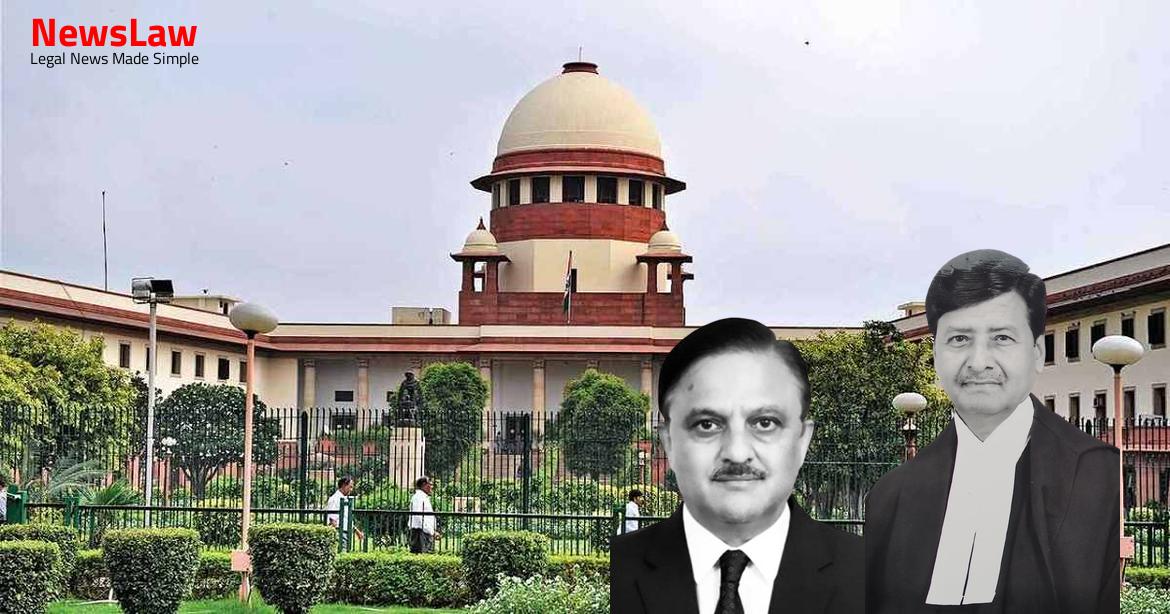The court’s legal analysis in this case highlights the importance of a reformative approach in criminal jurisprudence, focusing on caring for the victims and their well-being. Through its decision, the court emphasizes the significance of Section 357 of the Code of Criminal Procedure and the role it plays in addressing the needs of the victim. The judgment reflects a commitment to ensuring that justice is served while also considering the rehabilitation and support of those affected by the actions at hand.
Facts
- Respondent No.2 conceived for the second time during the period mentioned.
- The appellant was already married to Mastra Bibi and had an illicit relationship with respondent No.2, leading to their marriage.
- The parties lived as husband and wife in the appellant’s house for about a year and a half, resulting in the birth of two children.
- Respondent No.2 agreed to receive compensation of Rs.3.00 lakhs as verified by the police authorities.
- The appellant’s request for the benefit of the Probation of Offenders Act, 1958, was declined.
- Respondent No.2 claimed that the appellant subjected her to mental and physical torture and demanded dowry, leading her to return to her parents’ house.
- Respondent No.2 asserted that she legally married the appellant on 8.2.2000 as per Muslim customs and rites.
- The Court expressed willingness to consider reduction of sentence if adequate compensation was paid to respondent No.2.
- The appellant expressed willingness to pay Rs.3.00 lakhs as compensation to respondent No.2 and requested six months to raise the money.
- The appellant’s appeal against the judgment of the SDJM was dismissed by the Principal District and Sessions Judge, Pakur.
- A Criminal Revision filed by the appellant against the dismissal was also unsuccessful.
- Respondent No.2 agreed to the reduction of sentence or benefit under the Probation of Offenders Act upon receiving compensation.
- The appellant was sentenced to three years of rigorous imprisonment and a fine of Rs.10,000 by the SDJM.
Also Read: Supreme Court Judgment on Single Till Mechanism for HRAB Calculation: A Comprehensive Analysis
Analysis
- The alleged demand of dowry resulted in a case being lodged in the Court of SDJM.
- The case is registered under Section 498A of the Indian Penal Code.
- The proceedings were held on 23.08.2021, and the certificate has been placed on record.
- The object of criminal jurisprudence is reformative and focused on caring for the victim.
- Section 357 of the Code of Criminal Procedure is enacted to address this objective.
- The petitioner/appellant, although seeking a reduction of sentence, has shown remorse and willingness to make arrangements for the victim (respondent No.2) and her two children.
- The court supports such an arrangement as it would be beneficial to the victim and her children.
- Despite the nature of the offence, the appellant was not granted the benefit of the Probation of Offenders Act.
- The court chooses not to interfere with the appellant’s voluntary offer to provide for the victim and her children.
Decision
- The appellant is directed to deposit Rs.3.00 lakh with the trial court by 28.2.2022.
- If the amount is not deposited, the appellant will have to undergo the remaining 3 years of the sentence.
- On depositing the amount, Rs.2.00 lakh will be released to respondent No.2 for herself and her children.
- The appellant has already undergone about seven months of the sentence.
- The sentence will be reduced to the period undergone if the appellant pays Rs.3.00 lakh to respondent No.2 for her and her children’s benefit.
- The amount will be released with accrued interest when the children reach the age of 21 years.
- Rs.50,000 each out of the remaining amount will be kept in an FDR for the benefit of the children.
Also Read: Selection and Appointment of Judicial Officers in Himachal Pradesh
Case Title: SAMAUL SK. Vs. THE STATE OF JHARKHAND (2021 INSC 429)
Case Number: Crl.A. No.-000894-000894 / 2021



